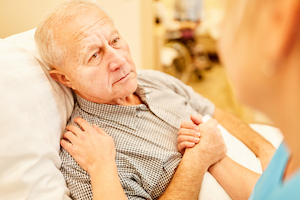 Poverty in the U.S. is a major public health issue with over 38 million people currently living in poverty. As well as alleviating poverty, part of the problem are people's attitudes towards those living in poverty. A public opinion poll found that 44 per cent of Americans believe most poor people who receive welfare would prefer to stay on welfare rather than earn their own living.
Poverty in the U.S. is a major public health issue with over 38 million people currently living in poverty. As well as alleviating poverty, part of the problem are people's attitudes towards those living in poverty. A public opinion poll found that 44 per cent of Americans believe most poor people who receive welfare would prefer to stay on welfare rather than earn their own living.
A new study published in the Journal of Nursing Education looked at the relationship between past experience, empathy, and attitudes toward poverty among nursing students. The results were surprising.
“The purpose of this study was to understand the relationship between attitudes towards poverty, empathy and past experience,” study author Karen Alexander, assistant professor from the Jefferson College of Nursing in Philadelphia told us, “with poverty among two cohorts of nursing students at the start of a public health nursing course.”
The Los Angeles Times surveyed Americans about their attitudes towards poverty and found that their results differed little from a survey conducted by the Times over 30 years ago.They also found that beliefs difference along racial and political lines and that most blue-collar, white Americans surveyed had more criticisms of the poor and support Donald Trump while blacks surveyed were more inclined to hold democratic beliefs.
“We thought that the students who had past personal experiences of poverty and past volunteer experiences with poverty would have higher empathy scores and a greater understanding of the structural causes of poverty,” Alexander told us.
The university developed the Jefferson Empathy Scale and is invested in understanding the connections between empathy in current and future healthcare providers and a variety of outcomes. They also are required more experiential learning inside of public health courses and thought it would be important to understand the baseline characteristics of its students as it relates to poverty and empathy.
The researchers surveyed both cohorts of students (accelerated and traditional) with validated scales (Attitudes towards Poverty, Jefferson Empathy Scale) and then asked basic demographic questions along with past experiences questions.
“We found that students who had past volunteer experience with individuals experiencing poverty scored lower on the empathy scale,” Alexander told us. “Those with past personal experience did not differ from those with no past personal experience with poverty in empathy or attitudes towards poverty. This was not what we theorized would occur.”
More women than men in the U.S. are considered poor. The government defines people living in poverty by the amount a family or individual makes in a year. A family of four is considered to be living in poverty if the entire household makes below $25,701. Many believe the way to fight poverty is through education which can not only lift people out of poverty but also change the attitudes of people towards those living in poverty.
“I think it means that simple exposure to poverty does not change ones attitudes toward others or increase empathy overall,” Alexander told us. “We feel as if this drives us to more reflective and difficult work of talking about implicit and explicit bias that we all possess.”
More women than men experience poverty in the U.S. Over 119 million children in the U.S. live in poverty which translates to one in six children. Seniors also experience poverty at a rate of 9.7 per cent.
“Nursing education needs to be more creative than simply requiring an experience ‘with people experiencing poverty’,” Alexander told us. “We need to help students process and reflect on their experiences and develop relationships with people who are different than them.”
Patricia Tomasi is a mom, maternal mental health advocate, journalist, and speaker. She writes regularly for the Huffington Post Canada, focusing primarily on maternal mental health after suffering from severe postpartum anxiety twice. You can find her Huffington Post biography here. Patricia is also a Patient Expert Advisor for the North American-based, Maternal Mental Health Research Collective and is the founder of the online peer support group - Facebook Postpartum Depression & Anxiety Support Group - with over 1500 members worldwide. Blog: www.patriciatomasiblog.wordpress.com
Email: tomasi.patricia@gmail.com